What if a friend finds out about AIDS?
The first thing that has to be seen is whether he has the courage to go on with his life.
If you want to continue to live, go to the Center for Disease Control and get tested, then register your information (confidential) and get regular medication every month, which is free and paid for by the state. You will be fine with regular medication for the rest of your life and your quality of life will not be affected.
If you don't have the courage to live with it, you just leave it alone, and then usually wait for a flare up (hiv has a long incubation period) and all sorts of complications will come together and life is over.
I suggest:
1. In the face of AIDS, we should learn to face it, believe in science and be positive.
2. Be kind to yourself and everyone around you, don't have sex with others and avoid sexual and blood transmission.
3. Similarly, family members, relatives and friends should treat the patients well without discrimination or abandonment.
What if a friend finds out about AIDS?
This question has actually been asked by many people. Being in a state of fear of AIDS, it is true that for those who are in contact with it, they are a bit tormented and disturbed inside. Because this disease is currently incurable, and the key is contagious, such a disease who is not afraid of it, therefore, the fear of psychology is very normal, we are all ordinary people.
What should I do if my friend is found to have AIDS?
First of all, stay calm. This is the time when your friend is the most helpless and scared, you have to give timely comfort and encouragement and try to calm him down. Tell him that although AIDS is horrible, it's not that he will die in a moment, and there are medications to control it. Secondly, don't show the feeling of alienating him, as long as there is no contact of body fluids, general handshake, pulling and hugging are not contagious.
Secondly, go with him to the hospital, this is important, take his meds on time, meds are mostly free at CDC at this point.
Third, try to get him to recall who he has been in contact with and whose side he may have gotten it from so that he doesn't unknowingly infect more people.
Fourth, try to return him to a normal lifestyle. In fact, in addition to taking medication on time and preventing colds, immunity is also very important, and moderate exercise is indispensable. It is also important to protect yourself as well as others.
Fifth, it's all about keeping a good mindset!
Thanks for the invite!
Whether it is a friend or a family member, it is indeed a great pity to be diagnosed with AIDS. So far, there is no reliable and effective way to prevent and treat AIDS. Since the fact has been finalized, we can only advise him to be brave and correctly face, active treatment, control the continued development of the disease is the only way, in view of this, to give you some knowledge about AIDS, to enhance your understanding of this terrible disease.
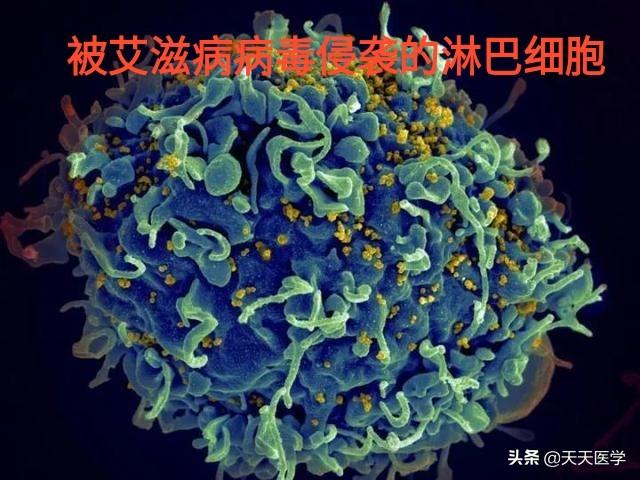
AIDS is an acquired immunodeficiency syndrome that is contracted through sexual contact, blood (sharing of injecting equipment, importation of contaminated blood or blood products, trauma contact), contact with body fluids (saliva, tears, breast milk, etc.), and mother-to-child transmission. The virus enters the human body, destroys the lymphocyte system, and causes the human body to undermine or lose its immune system, which results in the occurrence of a variety of serious infections and malignant tumors that are fatal to the human body at any time. The virus enters the human body and destroys the lymphocyte system, causing the human body to lose its immunity and leading to fatal infections and malignancies.
The incubation period of HIV ranges from 2 weeks to 15 years, so it is not easy for most patients to detect the infection in time. The progression of the disease after being infected by HIV is generally divided into three stages:
1. Acute phase: usually occurs 2 to 4 weeks after the initial HIV infection, some infected patients develop symptoms of HIV bacteremia and acute damage to the immune system. Most of the patients have mild symptoms that last for 1~3 weeks and then resolve. It is often manifested as unexplained fever, which may be accompanied by general malaise, headache, night sweats, nausea, vomiting, diarrhea, sore throat, myalgia, arthralgia, skin rash, enlarged lymph nodes, and neurological symptoms, and so on.
2. Asymptomatic phase: After the symptoms of acute phase are relieved, the patient enters the asymptomatic phase, or enters the asymptomatic phase directly in the absence of obvious symptoms of the acute phase, and the duration of this phase is generally 6-8 years, which is the best period for the treatment of AIDS. The duration of the period is related to the number of infected viruses, the type of virus, the route of infection, the strength of the body's immunity, nutritional status, hygienic conditions and living habits. That is to say, people with good physical condition will last longer than those with poor physical condition.
3. AIDS exacerbation: It is the final stage of AIDS. Lymphocytes in the body continue to decrease, the virus replicates in large quantities and related symptoms appear, opportunistic infections and malignant tumors occur. Symptoms of AIDS are long lasting fever. Night sweats, diarrhea, weight loss, memory loss, apathy, personality changes, headaches, seizures or dementia. There is also persistent generalized lymph node swelling. As the disease continues to worsen, Pneumocystis pneumonia, Mycobacterium avium, Candida and Cryptococcal lung infections, Kaposi's sarcoma, Cryptococcal meningitis, Tuberculous meningitis, Toxoplasma meningoencephalitis, various viral meningoencephalitis, Candida albicans esophagitis, Cytomegalovirus esophagitis, Enteritis, Salmonella, Dysentery bacillus, Campylobacter jejuni and Cryptosporidium enterocolitis, Thrush, Esophageal ulcers, and Infectious perianal and proctitis, recurrent oral ulcers, gingivitis, herpes zoster, molluscum contagiosum, condyloma acuminatum, fungal dermatitis and onychomycosis, cytomegaloviral and toxoplasmic retinitis, and malignant lymphoma with corresponding symptoms.
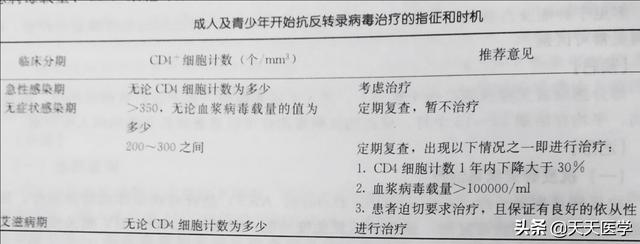
After the diagnosis of AIDS is clear, the first thing to do is to establish confidence in treatment, strengthen nutrition, appropriate exercise, avoid cold and flu or labor, and enhance the ability to resist disease. You should also pay attention to your living habits, and do a good job of self-isolation and protection to avoid infecting others. At the same time, choose zidovudine-like nucleoside transcriptase inhibitors, efavirenz-like non-nucleoside transcriptase inhibitors or indinavir and other protease inhibitors for antiviral treatment. When opportunistic infections or tumors occur, appropriate symptomatic treatments should be administered to control further progression and exacerbation of the disease.
Overall, although AIDS is a serious disease that is difficult to treat, it is still necessary to actively seek effective methods of treatment, which is necessary to control the deterioration of the disease and improve the quality of life of patients. Never give up treatment and let it develop.

Follow Daily Medicine for more health knowledge. Feel free to like and criticize.
Thanks for reading!
Never be suddenly indifferent to him or stay away! This is a very big blow to him, at this time he needs the most care and warmth, although AIDS is terrible, but the mental stress is even more terrible! When contacting him, you should not only do to protect yourself but also not let the other side to see, be bold and careful, advise him to face the reality and actively cooperate with the treatment, so that slowly adapt to the miracle may also occur!
Hello! There are two types of HIV screening: active and passive. Either way, when your friend is found to have HIV, it is tantamount to a case of exposure and will not be ignored by the health care providers. Generally, after the discovery of HIV, the CDC will establish a file for the HIV patient and provide free antiretroviral treatment for better management of the patient. Therefore, it is not a big problem for patients to receive treatment and nutritional support!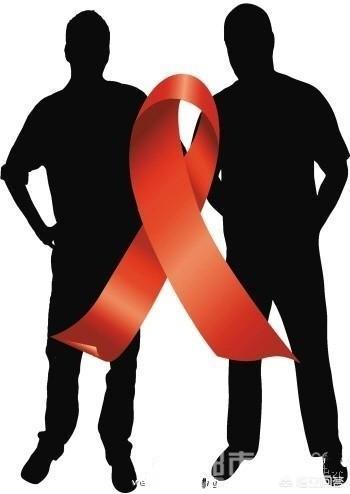
As a friend, how to get along with the AIDS patient. This in fact plagued a lot of people, mainly on the one hand, afraid of friends of "AIDS", on the other hand, do not dare to let friends feel that they are alienated from him, so it is very entangled. Therefore, if your friend has AIDS, generally do not worry too much about each other will infect you, life's ordinary get along with hugging meals will not be infected; In addition, AIDS is often not only on the body has harm, more is the whole social level of hidden harm, therefore, more is understanding and care for friends, more encourage each other to positively and correctly deal with AIDS, reasonable standardization of treatment, give more social support! Social support! Help your friend to get out of the pain of the disease as soon as possible.
Feel free to leave a comment and share!
This question reminds me, of a similar question I answered before: should I visit my friend who has AIDS.
To be honest, even with the popularization of science and technology, people with AIDS should not be discriminated against and kept away from, but many of my friends are still unable to control their inner fear, which is human and completely understandable.
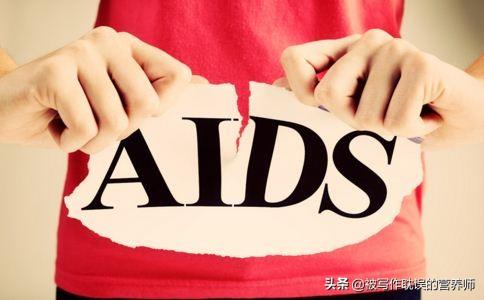
What if a friend finds out about AIDS?
The author can only answer this question with a personal transposition, theIf the author's friend has AIDS, a particularly close friend, I will definitely go and visit and encourage him more often, as daily contact is not contagious and inner fears can be suppressed by feelings.
However, it will do so by following medical advice and the patient's wishes for visits and communication, and by taking certain precautions to avoid contact with blood, breast milk, and other conditions that could lead to transmission.
But if it's just friends.I probably wouldn't show much, for one thing, he may not want others to know in his heart, and sometimes caring can be a burden; secondly, I would keep my mouth shut, and wouldn't tell anyone as gossip, respecting my friend's privacy; and thirdly, if he needed my help, I would help as much as I could, but wouldn't take the initiative.
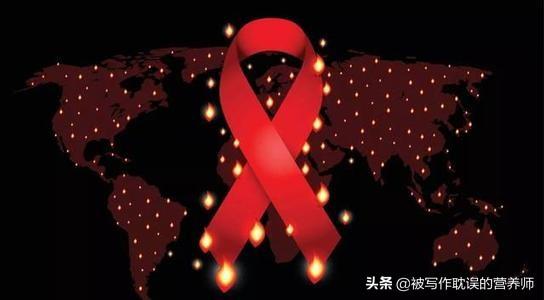
But then again, although AIDS is still a medical problem that has not been solved all over the world, with the development of science and technology and medicine, AIDS can still be controlled in a relatively stable manner under standardized treatment, which can, to a certain extent, ensure the quality of life of the patients and prolong the duration of their lives.
Anyway, it's your choice what you do or what you do when a friend has AIDS.But protecting your friends' privacy and not criticizing them behind their backs is the most basic principle of being a human being.
Thanks for reading.
If you are truly a friend he can count on. Please take him bravely into the CDC. Get on the medication early! HIV is not scary! After the antiretroviral drugs are taken, the viral load in the body is controlled to below the national testing standard in about six months (for most patients). What does it mean? It is this drug that the patient takes. It is equivalent to a protection, to the patient is protection, do not let the virus continue to deteriorate. It's protection for the people around him. Because the viral load is under control, he won't be contagious. He can get married, have children, and get his life back on track. (Don't think it's alarmist! It's all very normal! The patient is a normal person after taking the medicine. And high blood pressure diabetes is the same chronic disease patients only. You need to take medication for life. Marriage and children are not a problem.)
Give your friend the courage to understand that it's a process, no matter what caused him to be HIV positive. Both need to reprogram their lives! Face it all with sunshine! Go for it!
The first thing to do is to verify the diagnosis at the local CDC or infectious disease hospital, and popularize the relevant prevention, treatment and other prevention and treatment knowledge. Secondly, you should do a good job of psychological guidance, if necessary, you can go to the hospital to see a psychiatrist for psychological counseling. Thirdly, they should accept the relevant examination and monitoring work of the local CDC or infectious disease hospital on a regular basis, so as to standardize the treatment and control the development of the disease. Fourthly, those who are in a position to do so can participate in groups related to AIDS patients to exchange ideas and increase self-confidence.
You hurry up and check it out too!
One,He was advised to build up his confidence, treat the disease in time with proper conditioning, and not to spread the disease to others.
ii,Avoid overeating, eat reasonably, and avoid wind and cold to prevent cold.
This question and answer are from the site users, does not represent the position of the site, such as infringement, please contact the administrator to delete.